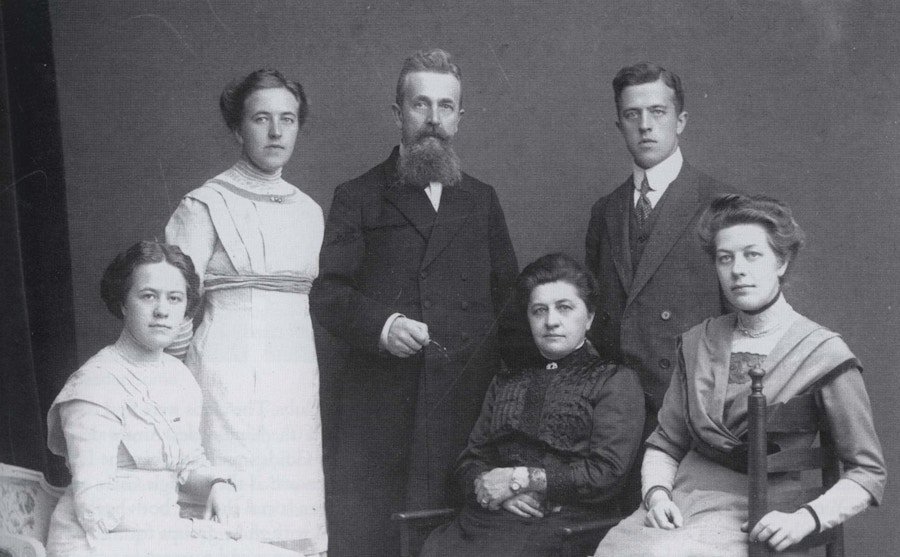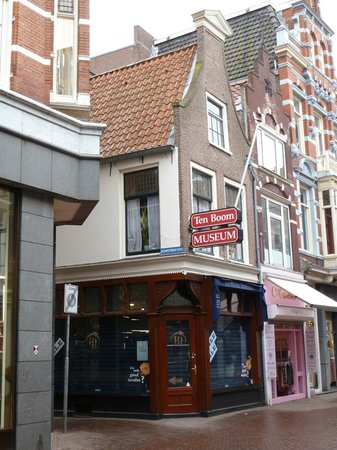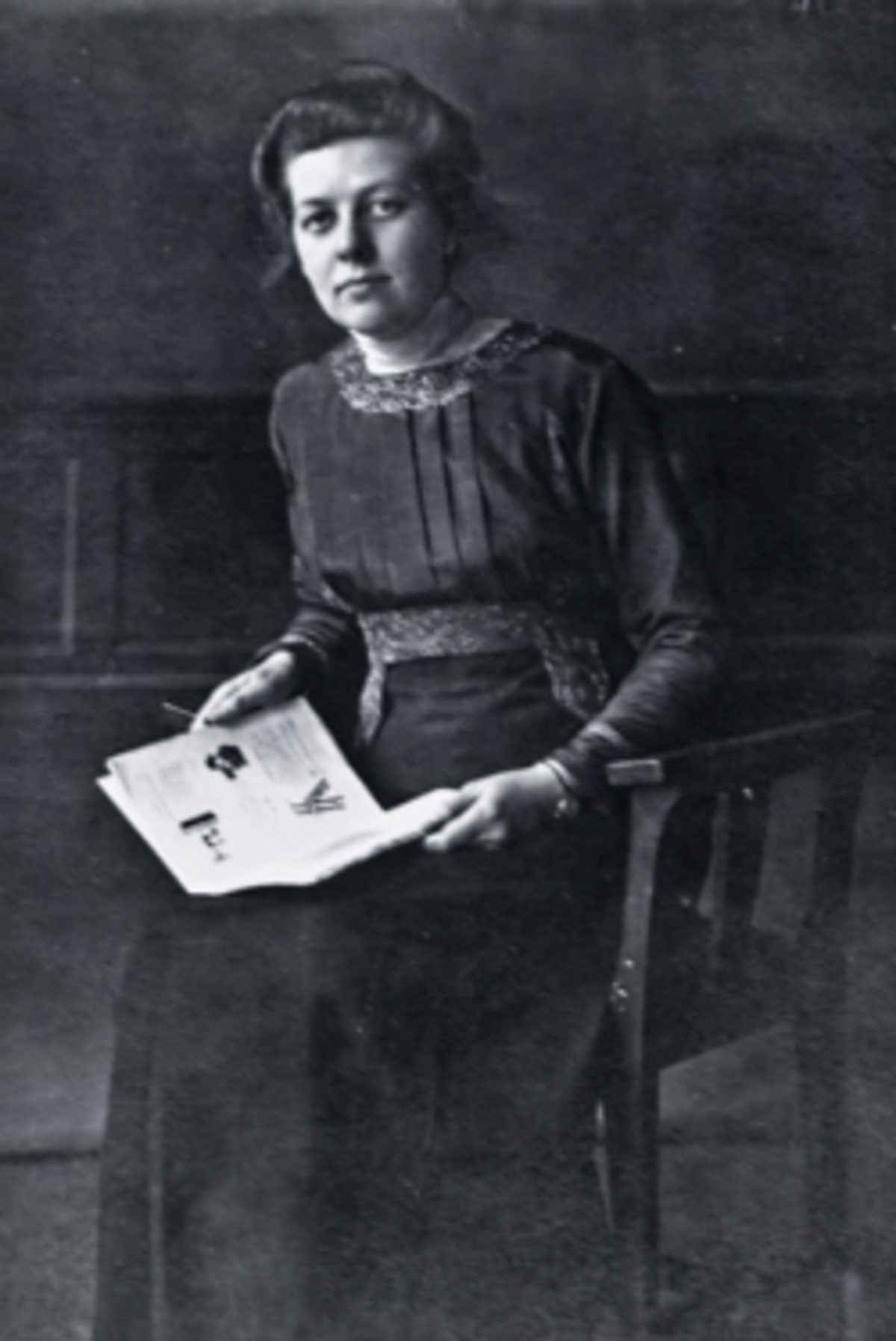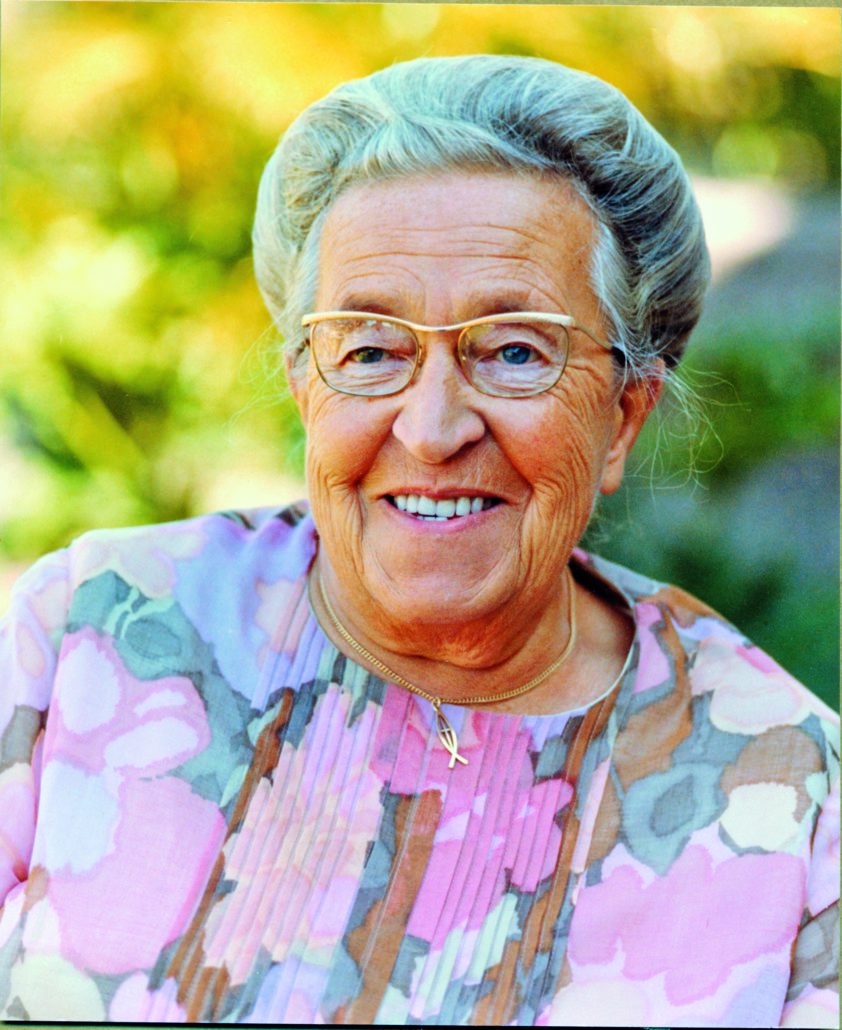
Corrie ten Boom was a woman admired the world over for her courage, her forgiveness, and her memorable faith. In World War II, she and her family risked their lives to help Jews escape the Nazis, and their reward was a trip to Hitler's concentration camps. But she survived and was released--as a result of a clerical error--and now shares the story of how faith triumphs over evil.
★★★★☆
The Hiding Place is Corrie (Cornelia) ten Boom's memoir --- as told to Guidepost Magazine editors John and Elizabeth Sherrill --- of the imprisonment of herself and several family members after they offered help to persecuted Jewish members of their community.

Prior to World War II, the ten Booms, a family of skilled watchmakers, had developed quite a good business around clocksmithing in the town of Haarlem, Holland. The story opens on the day of the 100th anniversary of the family shop, when Corrie's older brother arrives to the party with an unexpected guest: Herr Gutlieber, a now disfigured Jewish man who had fled from Germany after being set on fire by a group of teenagers. From there the story goes back a bit through the history of the ten Boom family and how they eventually came to be imprisoned in numerous concentration camps.

The ten Boom children were well-educated, Casper insisting that everyone be fluent not only in Dutch, but also English and German as well. Corrie shows readers that her father had an amazing, gentle way of discussing difficult topics with children. The day little Corrie first asks what sex is (during a train trip home), Casper's response:

Or on the subject of death:
In those early moments of Corrie's life, we get a glimpse into what a special man Casper ten Boom was, not just to his children but to his entire community.
After 1916, when wristwatches started becoming fashionable, Corrie takes a course in watch repair, becoming the first female to become a licensed watchmaker in Holland. While most of her siblings grow up, marry, and start families of their own, Corrie and her sister Betsie (seven years older than Corrie and persistently struggling with a weak immune system) end up becoming the spinster sisters who stay in the family home and care for their parents and aunts as well as a number of foster children over the years.
By Chapter 5 ("Invasion"), the year is 1939. England, France and Germany have entered into World War II while the people of Holland still wait to hear what the fate of their nation will be. Until then, there's a sort of cautious "business as usual" air about the town. Finally word comes over the radio. The Prime Minister announces that "Holland's neutrality will be honored", promising there will be no war for them. Five hours later, the ten Boom sisters are woken in the middle of the night to the sound of the nearby airport being bombed. Within the week, the people of Haarlem are being given their first instructions on blackout procedures. A year later, the whole area is fully under German rule and becomes largely strongly anti-Semitic.
Corrie watches Jewish neighbors being silently hauled off. She wants to help, remembers her older brother Willem has been quietly been doing some relief work for the Jewish community for awhile. With his advice, she finds small ways to help here and there, but wishes to do even more. In 1941, she's told about "the underground" by Willem's son, Kik.
Willem, sure that he's being watched by the German government, starts to pull away from helping Corrie so much, but advises her to continue to seek out her own contacts to carry on relief work. She takes the advice, developing connections with longtime friends and business acquaintances around town, slowly putting together means to obtain food, shelter, and supplies for displaced Jews. Corrie even develops a coded language for relaying messages using watch repair terminology, just in case said messages might be intercepted by the Germans. Corrie and Betsie begin to hide Jewish families in their family home, the Beje (pronounced bay-yay). With Kik's help, Corrie runs drills on the house to prepare for possible German raids. Kik would wake her up in the dead of night and ask Corrie -- while she was still groggy with sleep -- questions they presumed German soldiers would ask of her, training her to not give away condemning information.

In February 1944, while 52 year old Corrie lay in bed battling influenza, the raid happened. The ten Booms and all the Jewish people they were hiding were all hauled off to the nearest police station for detainment until they could be transported to The Hague. From there they were moved to the camp Scheveningen, spending four months there before being transferred to first Vaught and then Ravensbruck concentration camps.

There are so many moving aspects of this memoir. Not only is it a story of incredible faith and perseverance in the face of pure evil, but Corrie's story also weaves in the beauty of strong bonds within family and community, and the power of making a sense of community wherever one is placed, no matter how dire the circumstances. There's stories of Corrie and Betsie finding ways to smuggle a bible through the various camps, setting up secret "church services" (essentially informal bible study) for their fellow prisoners. The immeasurable hope they must have brought to so many!
There's also the powerful story of deep sisterly love between Corrie and Betsie, how they stuck by each other unless cruelly forced apart. In one such instance while at Ravensbruck, Betsie is singled out by a guard and ridiculed about her severly weakened physical state. The guard makes fun of Betsie and then proceeds to lash her on the back of the neck. Corrie lunges after the guard in a murderous rage, but is held back by the pleas of non-confrontational Betsie. In another scene, when all the prisoners are being stripped of any and all personal belongings, Corrie miraculously finds a way to smuggle vitamin oil and a sweater through security for her sickly sister.

The sisters mutually keep each other's spirits up by discussing post-war plans of opening up a rehabilitation center for Holocaust survivors. These discussions ring similar to the talks of the farm between Lenny and George in John Steinbeck's Of Mice and Men. The main difference between the sisters, though, is Corrie sees the project as a faraway dream while Betsie's belief is more that it's an already present reality they just haven't stepped into yet. Betsie's unwavering optimism sometimes offers a touch of comedic relief to Corrie's story. While it's acknowledged that Corrie often happily leans on Betsie's rosy way of looking at the world, there are times where it seems to humorously irritate Corrie just a bit. Case in point, the "fleas" conversation while imprisoned at Ravensbruck:
Turns out she wasn't though! Betsie's unwavering optimism later proves well-founded!
I've read some reviews that put forth the idea that Corrie's story somehow insinuates that she survived because she was Christian and others did not because they were not. While I didn't mind the religious aspects of the story, my lasting impressions didn't linger on that element .... though I could argue that there's fault in the reasoning of less favorable reviews anchoring themselves to the religious point... because Betsie's faith often struck me as being even deeper than Corrie's, yet Betsie did not survive.... sooo...
What was more lasting to me was the story of sheer determination to -- religions aside -- survive against all odds. To have dreams and goals to keep you going... and yes, faith. To lean on beautiful family bonds, and if you must be parted, to honor the memory of those souls to the best of your ability, primarily by living well, pushing for a life of love, laughter, and personal successes. Living, in part, for those who could no longer. Those themes are universally moving and ones that will continue to make this an enduring, worthwhile read for generations to come.
In the "Since Then..." afterword, it is noted:
The Hiding Place is Corrie (Cornelia) ten Boom's memoir --- as told to Guidepost Magazine editors John and Elizabeth Sherrill --- of the imprisonment of herself and several family members after they offered help to persecuted Jewish members of their community.
Prior to World War II, the ten Booms, a family of skilled watchmakers, had developed quite a good business around clocksmithing in the town of Haarlem, Holland. The story opens on the day of the 100th anniversary of the family shop, when Corrie's older brother arrives to the party with an unexpected guest: Herr Gutlieber, a now disfigured Jewish man who had fled from Germany after being set on fire by a group of teenagers. From there the story goes back a bit through the history of the ten Boom family and how they eventually came to be imprisoned in numerous concentration camps.

The ten Boom children were well-educated, Casper insisting that everyone be fluent not only in Dutch, but also English and German as well. Corrie shows readers that her father had an amazing, gentle way of discussing difficult topics with children. The day little Corrie first asks what sex is (during a train trip home), Casper's response:
He turned to look at me, as he always did when answering a question, but to my surprise he said nothing. At last he stood up, lifting his traveling case from the rack over our heads, and set it on the floor. "Will you carry it off the train, Corrie?" he said.
I stood up and tugged at it. It was crammed with the watches and spare parts he had purchased that morning."It's too heavy," I said.
"Yes," he said. "And it would be a pretty poor father who would ask his little girl to carry such a load. It's the same way, Corrie, with knowledge. Some knowledge is too heavy for children. When you are older and stronger you can bear it. For now you must trust me to carry it for you."

Or on the subject of death:
That night as he stepped through the door I burst into tears. "I need you!" I sobbed. "You can't die! You can't!"
"Corrie," he began gently, "when you and I go to Amsterdam --- when do I give you the ticket?"
I sniffed a few times, considering this. "Why, just before we get on the train."
"Exactly. And our wise Father in heaven knows when we're going to need things too. Don't run out ahead of him, Corrie. When the time comes that some of us will have to die, you will look into your heart and find the strength you need --- just in time."
In those early moments of Corrie's life, we get a glimpse into what a special man Casper ten Boom was, not just to his children but to his entire community.
After 1916, when wristwatches started becoming fashionable, Corrie takes a course in watch repair, becoming the first female to become a licensed watchmaker in Holland. While most of her siblings grow up, marry, and start families of their own, Corrie and her sister Betsie (seven years older than Corrie and persistently struggling with a weak immune system) end up becoming the spinster sisters who stay in the family home and care for their parents and aunts as well as a number of foster children over the years.
By Chapter 5 ("Invasion"), the year is 1939. England, France and Germany have entered into World War II while the people of Holland still wait to hear what the fate of their nation will be. Until then, there's a sort of cautious "business as usual" air about the town. Finally word comes over the radio. The Prime Minister announces that "Holland's neutrality will be honored", promising there will be no war for them. Five hours later, the ten Boom sisters are woken in the middle of the night to the sound of the nearby airport being bombed. Within the week, the people of Haarlem are being given their first instructions on blackout procedures. A year later, the whole area is fully under German rule and becomes largely strongly anti-Semitic.
Corrie watches Jewish neighbors being silently hauled off. She wants to help, remembers her older brother Willem has been quietly been doing some relief work for the Jewish community for awhile. With his advice, she finds small ways to help here and there, but wishes to do even more. In 1941, she's told about "the underground" by Willem's son, Kik.
So this was really and truly the underground! But --- where were these people from? I had never laid eyes on any of them. A second later I realized with a shiver down my spine that I was meeting the national group. Their chief work, I gleaned from bits of conversation, was liaison with England and the Free Dutch forces fighting elsewhere on the continent. They also maintained the underground route through which downed Allied plane crews reached the North Sea coast.
But they were instantly sympathetic with my efforts to help Haarlem's Jews. I blushed to my hair roots to hear Pickwick describe me as "the head of an operation here in the city." A hollow space under the stairs and some haphazard friendships were not an operation. The others here were obviously competent, disciplined, and professional. But they greeted me with grave courtesy, murmuring what they had to offer as we shook hands. False identity papers. The use of a car with official government plates. Signature forgery....
Willem, sure that he's being watched by the German government, starts to pull away from helping Corrie so much, but advises her to continue to seek out her own contacts to carry on relief work. She takes the advice, developing connections with longtime friends and business acquaintances around town, slowly putting together means to obtain food, shelter, and supplies for displaced Jews. Corrie even develops a coded language for relaying messages using watch repair terminology, just in case said messages might be intercepted by the Germans. Corrie and Betsie begin to hide Jewish families in their family home, the Beje (pronounced bay-yay). With Kik's help, Corrie runs drills on the house to prepare for possible German raids. Kik would wake her up in the dead of night and ask Corrie -- while she was still groggy with sleep -- questions they presumed German soldiers would ask of her, training her to not give away condemning information.

In February 1944, while 52 year old Corrie lay in bed battling influenza, the raid happened. The ten Booms and all the Jewish people they were hiding were all hauled off to the nearest police station for detainment until they could be transported to The Hague. From there they were moved to the camp Scheveningen, spending four months there before being transferred to first Vaught and then Ravensbruck concentration camps.

Paris, France
There are so many moving aspects of this memoir. Not only is it a story of incredible faith and perseverance in the face of pure evil, but Corrie's story also weaves in the beauty of strong bonds within family and community, and the power of making a sense of community wherever one is placed, no matter how dire the circumstances. There's stories of Corrie and Betsie finding ways to smuggle a bible through the various camps, setting up secret "church services" (essentially informal bible study) for their fellow prisoners. The immeasurable hope they must have brought to so many!
Lights-out blew and the scramble into the bunks began. I hoisted myself to the middle tier and crawled across those already in place. What a difference since Betsie had come to this room! When before this had been the moment for scuffles and cursing, tonight the huge dormitory buzzed with "Sorry!" "Excuse me!" and "No harm done!"
I found our section in the dark and squeezed into a spot in the middle. From the doorway a searchlight swept the room, lingering on blocks where anything stirred. Someone's elbow dug into my back, another woman's feet were two inches from my face. How was it possible, packed so close, to be so utterly and miserably alone?
There's also the powerful story of deep sisterly love between Corrie and Betsie, how they stuck by each other unless cruelly forced apart. In one such instance while at Ravensbruck, Betsie is singled out by a guard and ridiculed about her severly weakened physical state. The guard makes fun of Betsie and then proceeds to lash her on the back of the neck. Corrie lunges after the guard in a murderous rage, but is held back by the pleas of non-confrontational Betsie. In another scene, when all the prisoners are being stripped of any and all personal belongings, Corrie miraculously finds a way to smuggle vitamin oil and a sweater through security for her sickly sister.

The sisters mutually keep each other's spirits up by discussing post-war plans of opening up a rehabilitation center for Holocaust survivors. These discussions ring similar to the talks of the farm between Lenny and George in John Steinbeck's Of Mice and Men. The main difference between the sisters, though, is Corrie sees the project as a faraway dream while Betsie's belief is more that it's an already present reality they just haven't stepped into yet. Betsie's unwavering optimism sometimes offers a touch of comedic relief to Corrie's story. While it's acknowledged that Corrie often happily leans on Betsie's rosy way of looking at the world, there are times where it seems to humorously irritate Corrie just a bit. Case in point, the "fleas" conversation while imprisoned at Ravensbruck:
"Fleas!" I cried. "Betsie, the place is swarming with them! How can we live in such a place!"
It took me a second to realize she was praying.
"Corrie!" she said excitedly. "He's given us the answer! Before we asked, as He always does! In the Bible this morning. Where was it? Read that part again!"
In the feeble light I turned the pages. "Here it is: 'Comfort the frightened, help the weak, be patient with everyone. See that none of you repays evil for evil, but always seek to do good to one another and to all...Rejoice always, pray constantly, give thanks in all circumstances..."
"That's it, Corrie! That's His answer! 'Give thanks in all circumstances!' That's what we can do. We can start right now to thank God for every single thing about this new barracks!"
I stared at her, then around me at the dark, foul-aired room. "Such as?" I said.
"Such as being assigned here together.... Such as what you're holding in your hands."
I looked down at the Bible. "Yes! Thank You, dear Lord, that there was no inspection when we entered here! Thank You for all the women, here in this room, who will meet You in these pages."
"Yes," said Betsie, "Thank You for the very crowding here. Since we're packed so close, that many more will hear!" She looked at me expectantly. "Corrie!" she prodded.
"Oh, all right. Thank You for the jammed, crammed, stuffed, packed, suffocating crowds.
"Thank You," Betsie went on serenely, "for the fleas and the ----"
The fleas! This was too much. "Betsie, there's no way even God can make me grateful for a flea."
" 'Give thanks in ALL circumstances,' " she quoted, "It doesn't say 'in pleasant circumstances.' Fleas are part of this place where God has put us."
And so we stood between piers of bunks and gave thanks for fleas. But this time I was sure Betsie was wrong.
Turns out she wasn't though! Betsie's unwavering optimism later proves well-founded!
I've read some reviews that put forth the idea that Corrie's story somehow insinuates that she survived because she was Christian and others did not because they were not. While I didn't mind the religious aspects of the story, my lasting impressions didn't linger on that element .... though I could argue that there's fault in the reasoning of less favorable reviews anchoring themselves to the religious point... because Betsie's faith often struck me as being even deeper than Corrie's, yet Betsie did not survive.... sooo...
What was more lasting to me was the story of sheer determination to -- religions aside -- survive against all odds. To have dreams and goals to keep you going... and yes, faith. To lean on beautiful family bonds, and if you must be parted, to honor the memory of those souls to the best of your ability, primarily by living well, pushing for a life of love, laughter, and personal successes. Living, in part, for those who could no longer. Those themes are universally moving and ones that will continue to make this an enduring, worthwhile read for generations to come.
In the "Since Then..." afterword, it is noted:
In 1959 Corrie was part of a group which revisited Ravensbruck, now in East Germany, to honor Betsie and the 96,000 other women who died there. There Corrie learned that her own release had been the result of a clerical "error"; one week later all women her age were taken to the gas chambers.
Her final years "were spent in a pleasant home, provided by friends, in Orange County, California. There a series of strokes curtailed first her physical movement, then her writing schedule, finally even her power of speech. But not her ministry. Those who came to cheer the bedridden and speechless old lady reported, marveling, that they were the ones cheered, uplifted, challenged. Only the close companions of those last years knew how eagerly she longed for the "real home" where her family had gone so long ahead. Homecoming fell for Corrie on her 91st birthday, April 15th, 1983."

Comments
Post a Comment